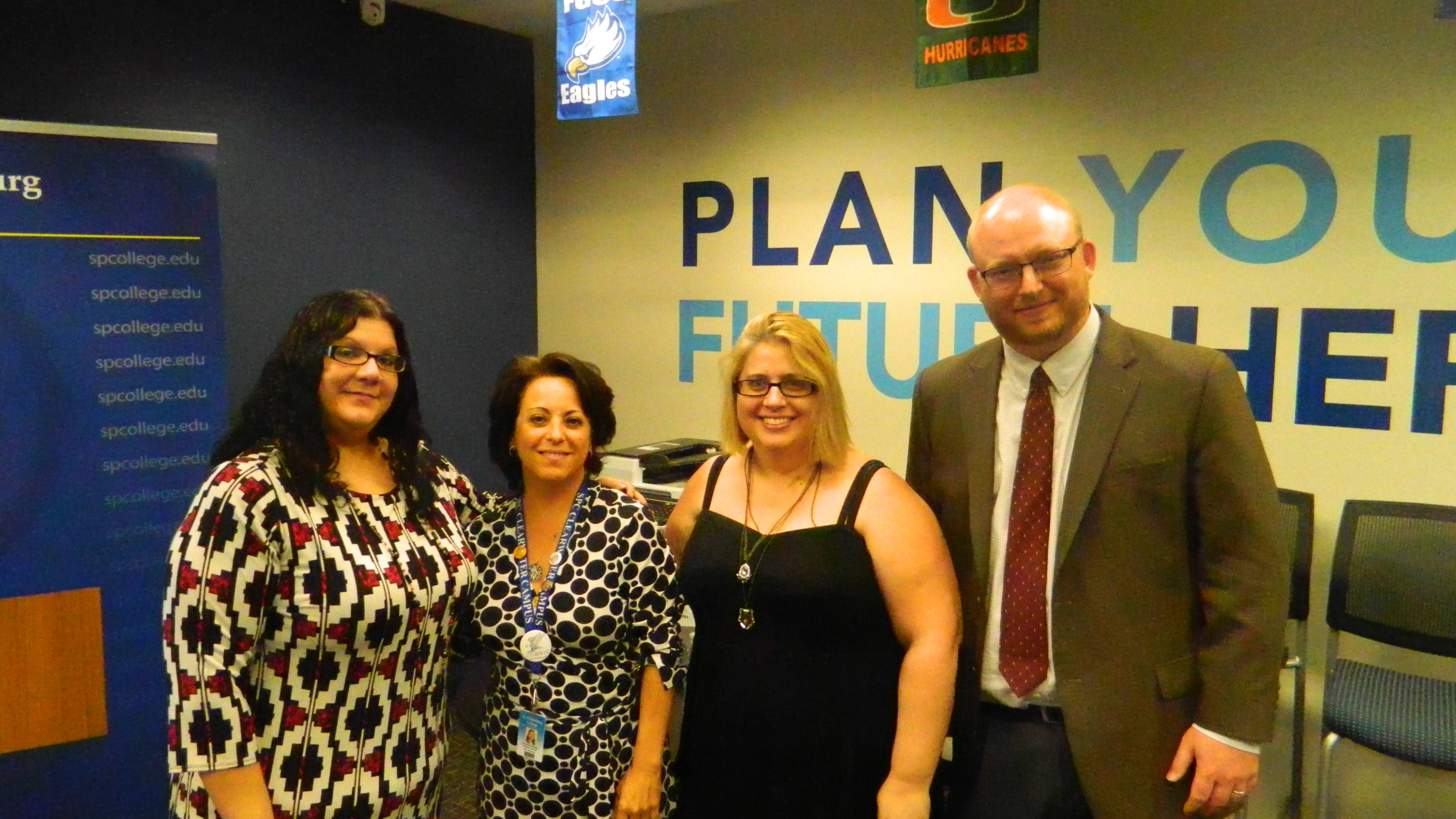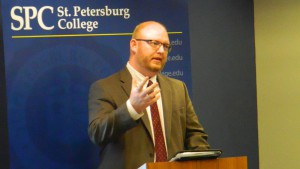
SPPD Detective, Outreach Coordinator Speaks on Human Trafficking
SPC Programs & Events March 23, 2016By Savvas Savvinidis
 SPC Campus, Tarpon Springs – A presentation was given on human trafficking this past Wednesday in the NU building, hosted by the Golden Key International Honour Society. Here to discuss the subject were Detective Thaddius Coffin of the St. Petersburg Police Department and Giselle Rodriguez, Outreach Coordinator for the Florida Coalition against Human Trafficking.
SPC Campus, Tarpon Springs – A presentation was given on human trafficking this past Wednesday in the NU building, hosted by the Golden Key International Honour Society. Here to discuss the subject were Detective Thaddius Coffin of the St. Petersburg Police Department and Giselle Rodriguez, Outreach Coordinator for the Florida Coalition against Human Trafficking.
There is particular imagery that comes to mind when most think of human trafficking — perhaps a battered young prostitute, or dark-skinned laborers huddled in cramped dormitories. We all understand the basic idea: sometimes, or rather, more times than we would like, human beings profit from the exploitation of other human beings as a living commodity. As livestock.
One of this presentation’s primary goals was to dispel certain stereotypes and misconceptions that cling to this modern day slavery. Rodriguez pointed out that human traffickers are not limited to the often demonized pimps and pushers, and that they include business owners, farmers, and those who, on paper, are law-abiding members of society.
In 2013, two Florida men were apprehended exploiting minors aged between 12 and 17. Structured as a legitimate non-profit program called “Teens Against Drug Use,” the operation relied on door-to-door sales scams carried out by teenagers packed like sardines in the cagelike cabin of a Chevy van. Though the kids were compensated, their pay was meager, and they were often charged for transportation and food, resulting in debts to their “employers.”
Rodriguez also spent time on the subject of forced labor among immigrant communities. Because of cultural and language barriers, it is not always apparent that workers may be victims of human trafficking. Rodriguez stressed the importance of body language and visual cues; if someone appears submissive in the workplace, seems frightened by their superiors, or visibly offers gratuity to management instead of keeping it for themselves, there is a good chance they are being held against their will and forced to work for near-nonexistent wages.
Victims of human trafficking, specifically those forced into prostitution and charged with crimes, are commonly blamed for their actions. Those with a black and white perspective on the law may view them simply as criminals to be justly punished, disregarding the circumstances which may have landed them in the hands of the law.
Det. Coffin stressed the importance of empathy in dealing with prostitutes and drug runners, who are often threatened into carrying out illegal activities. Perhaps a woman working the streets is only doing so to protect her loved ones from harm, or to score dope that her pimp has made certain she’s reliant on.
Where institutionalized slavery has died, underground slavery has taken its place. Our telephones and shoes are assembled by underpaid workers in unsafe conditions. The watermelons and tomatoes you eat may very well have been picked by women who have no respite from their employers’ sexual urges, bearing the weight so that they can send something back home to their families.
It’s no surprise, considering slavery likely predates written language, that it will never entirely go away, even here in the United States. Det. Coffin regretted that his department is stretched as thin as it is, forcing him to do the work that would ideally be spread among several people. Of course, therein lies the purpose of his and Ms. Rodriguez’ presentation: awareness.
People like them are only the head of the spear, only able to do so much by themselves. While it may be impossible to eliminate human trafficking completely, if everyone is educated, then it’s absolutely possible to exterminate it where it shows itself.





